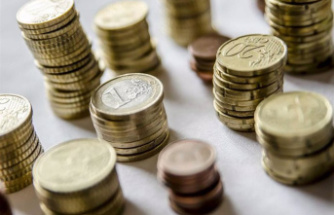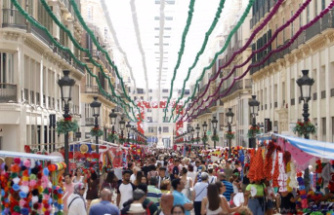The snow crab fishing season in the southern Gulf of St. Lawrence this year was weighed down by the arrival on the American market of large quantities of this crustacean from Russia.
This Russian crab was imported in abundance amid shortages last fall, due to the closure of the fishery in Alaska, and when household spending was on the rise. However, what was selling at a high price then continued to lose its value during the winter, when the American and Canadian governments ended the aid programs linked to the pandemic and when consumers finally deconfined recovered. to travel rather than eat expensive crab at home.
In addition, American buyers continued to buy Russian crab in droves this spring, rather than Canadian crab, before it was affected by the trade embargo due to the war in Ukraine. So much so that, according to the publication “Seafood.com”, these Russian imports reached a monthly record in May, with volumes four times greater than normal.
“Demand has never risen and cold stores are overflowing both in Atlantic Canada and the United States,” summarizes Gilles Thériault, president of the New Brunswick Crab Processors Association. The market price has thus fallen by half compared to last year, from a high of US$20/lb in 2021 to US$8.10-US$8.30/lb at the end of June 2022, while the price paid to fishermen in the southern Gulf itself went from $8.50/lb to $6/lb during the season.
For his part, the director general of the Association québécoise de l'industrie de la pêche, Jean-Paul Gagné, maintains that the surpluses of Russian crab do not explain everything. “Supply was also up very sharply in the Gulf and in Newfoundland, where quotas increased by more than 30% this year, not to mention the North Shore where allocations were 15% higher than those in last year", he mentions to underline that the growth of the Canadian supply has also affected the market, as has inflation.
Despite everything, the Magdalen Islands crabbers managed to capture 99% of their respective quotas during the season which ended on June 30, according to preliminary data from the Department of Fisheries and Oceans.
The captain of the "Marc-Olivier", Marco Turbide, says, however, that he had difficulty dealing with the multiple closures of quadrilaterals, to protect the right whales threatened with extinction who came to feed there. At one point, he had to move half of his 150 cages. “Whales make fishing more difficult,” he laments. In my sector, we no longer knew where to go with that. It was limited because everything around it was closed. We threw where we could and not where we wanted.













